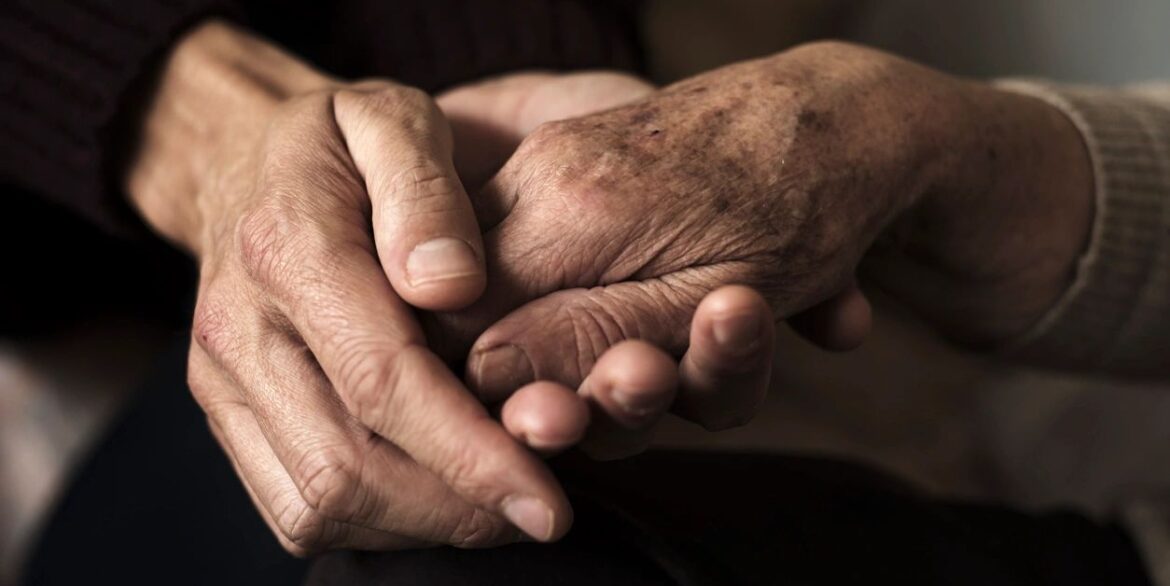
Love Through the Ages: Building Resiliency in Older Couples
By Lauren Godfrey
As couples gracefully navigate the journey of aging, maintaining a vibrant and romantic relationship can become a rewarding yet complex endeavor. The challenges of aging—such as health changes, evolving roles, and the passage of time—can test even the strongest bonds. However, these challenges also offer unique opportunities for deepening intimacy and rediscovering the joy in each other’s company. In this blog post, we'll explore practical and heartfelt strategies that aging couples can embrace to keep the romance alive, fostering a loving and enduring partnership that continues to thrive through the years.
Changes in Health
As people age, we experience natural changes that impact how we engage in relationships. Embracing changes as a team is an opportunity for growth as a couple. Couples can get curious about changes, learning together how the effects of aging or illness will impact the individual and couple. For example, partners can learn about the effects of diagnoses, facilitate communication with healthcare professionals, and explore lifestyle changes together.
Additionally, couples can be creative about changes by brainstorming new activities and hobbies that accommodate the effects of aging. Couples can support each other in learning new recipes, trying exercises like Tai Chi, or hosting social events. By regularly checking one another’s mental and physical states, couples can take appropriate measures to address emerging needs.
Planning
By planning for the future, aging couples adapt more easily to a lifestyle that meets their needs. Events like retirement or illness require financial planning. Couples who plan have time to budget and save for future events that sometimes arrive more quickly than expected.
While it is a hard conversation to have, the earlier couples plan for the end of life, such as making medical decisions or creating a will, the more time and resources they will have to adapt to it. Planning allows time for conflict resolution when couples disagree on important topics. There are emotional, physical, and cognitive processes that may need to be acclimatized to the reality of the end of a life. Planning for the events that occur in later adulthood gives couples time and peace of mind.
A New Type of Intimacy
Physical changes, differing energy levels, and life stressors make having a sex life challenging for some aging couples, therefore, sexual intimacy requires an alternate approach. Aging couples can benefit from adjusting definitions of sex and sexual behaviors, such as the viewpoints of the Good Enough Sex model. The Good Enough Sex model emphasizes aiming for having “good enough” sex, rather than a “perfect” sexual experience. The approach involves setting realistic expectations, accepting imperfections, and focusing on pleasure rather than achieving set goals.
Furthermore, couples can benefit from trying sensate focus, an approach that emphasizes physical sensations rather than performance. The technique involves a gradual progression from non-sexual touching to sexual intimacy, with an emphasis on sensations, communication, and trust. This helps take the pressure off completing a set of tasks throughout the sexual experience.
Emotional Connection
Whether a couple just formed a relationship or has been married for decades, maintaining an emotional connection helps to moderate the challenges of growing older together. Many different types of intimacy, such as spiritual, experiential, and physical, strengthen the emotional connection in romantic relationships.
Couples can build and maintain emotional intimacy by spending quality time together, sharing goals, and showing affection. As loved ones pass away, supporting each other through grief or spiritual exploration strengthens emotional bonds. Another aspect of emotional intimacy is supporting one another's independent growth, such as pursuing individual hobbies, activities, and friends. Through open communication and understanding throughout individual and couple activities, couples can strengthen their emotional bond.
Reflection
One of the many joys of sharing life with someone is reflecting on and appreciating the memories, achievements, and legacies made. While planning for the future and exploring the present are necessary, it is also important to honor each other’s lived experiences. From viewing photos to telling stories, partners can cherish one another.
Additionally, aging partners discuss how they each want to be remembered, what they are most proud of, and any regrets they might have. By reflecting on life's ups and downs, couples can find closure and express gratitude for a life well lived.
Couple's Therapy
Even couples who have spent decades together run into barriers while trying to maintain a romantic relationship in older age. There may be sore spots in the relationship from years prior that still impact it today. Some couples may have fallen into a routine and need help "re-igniting the flame." Others might need help navigating life transitions. Each couple’s unique situation deserves individualized treatment from a therapist. By attending therapy, aging couples find the support, structure, and hope needed to maintain a thriving relationship into older adulthood.
For couples seeking additional guidance and support, the therapists at Therapy for Families offer specialized expertise to navigate the unique challenges of aging relationships. With a range of services tailored to enhance emotional connection, improve communication, and address specific concerns, they can provide valuable tools and insights to help you and your partner thrive together. Reach out to Therapy for Families to discover how their compassionate and professional support can help you create a loving and resilient partnership for years to come.



